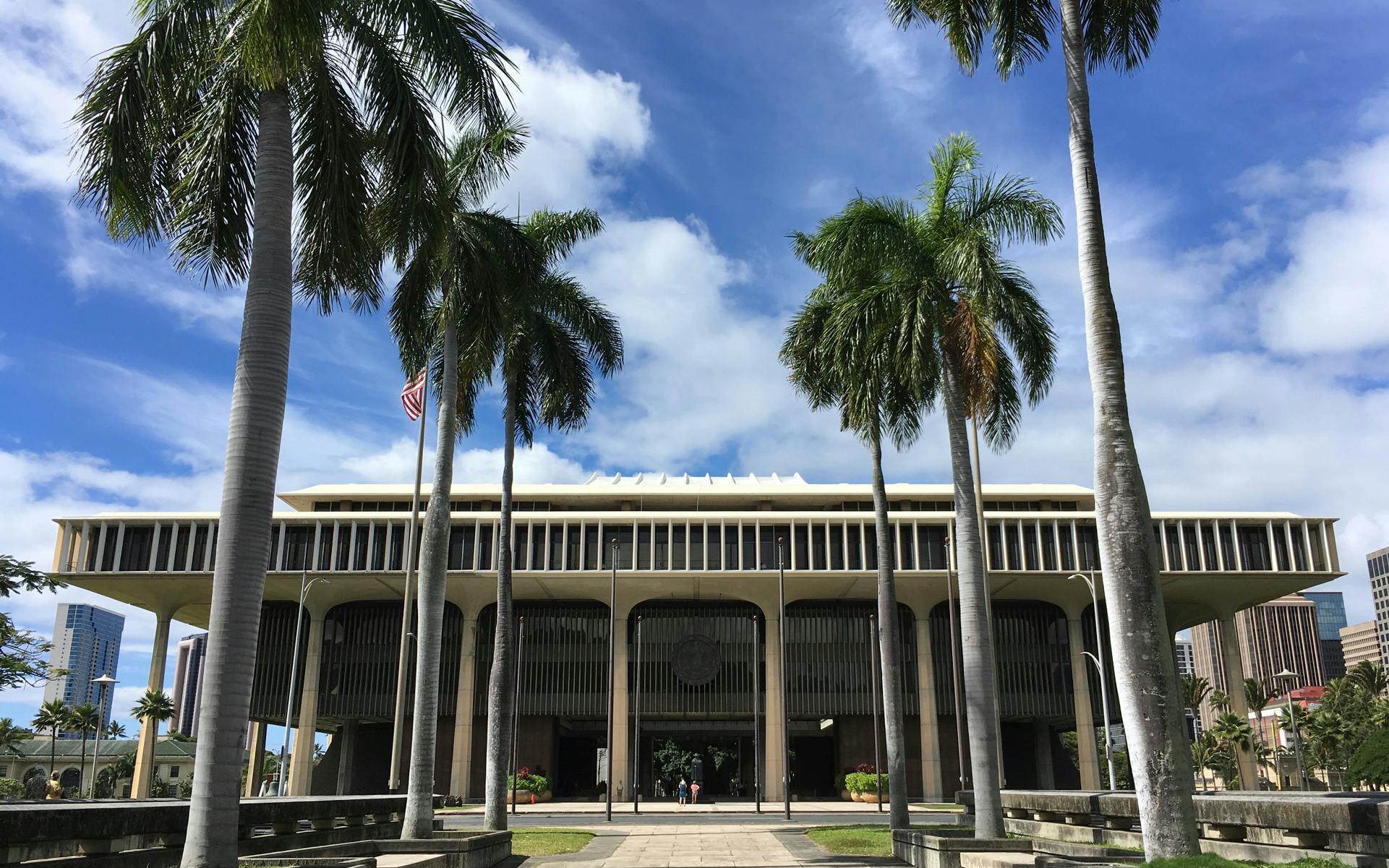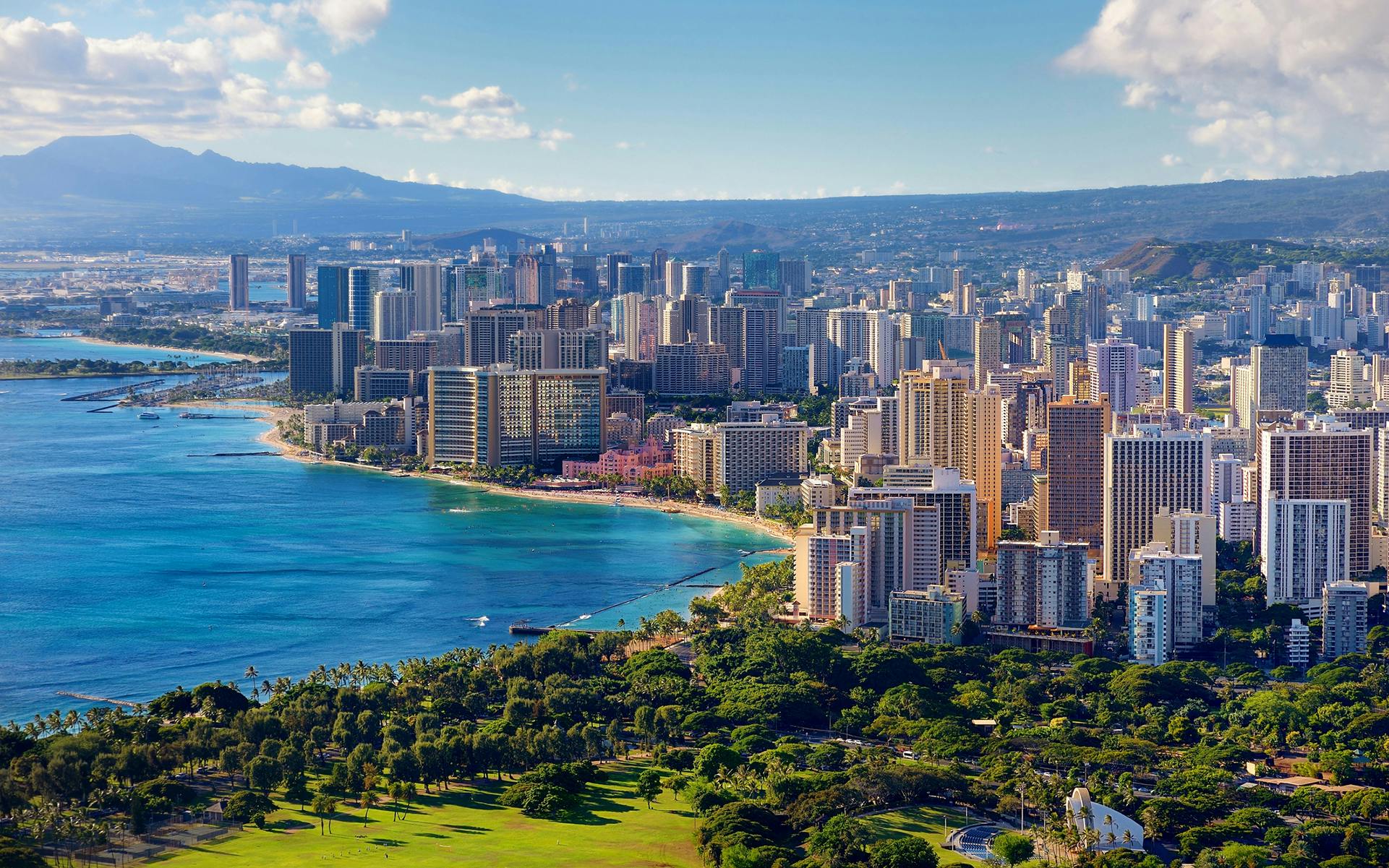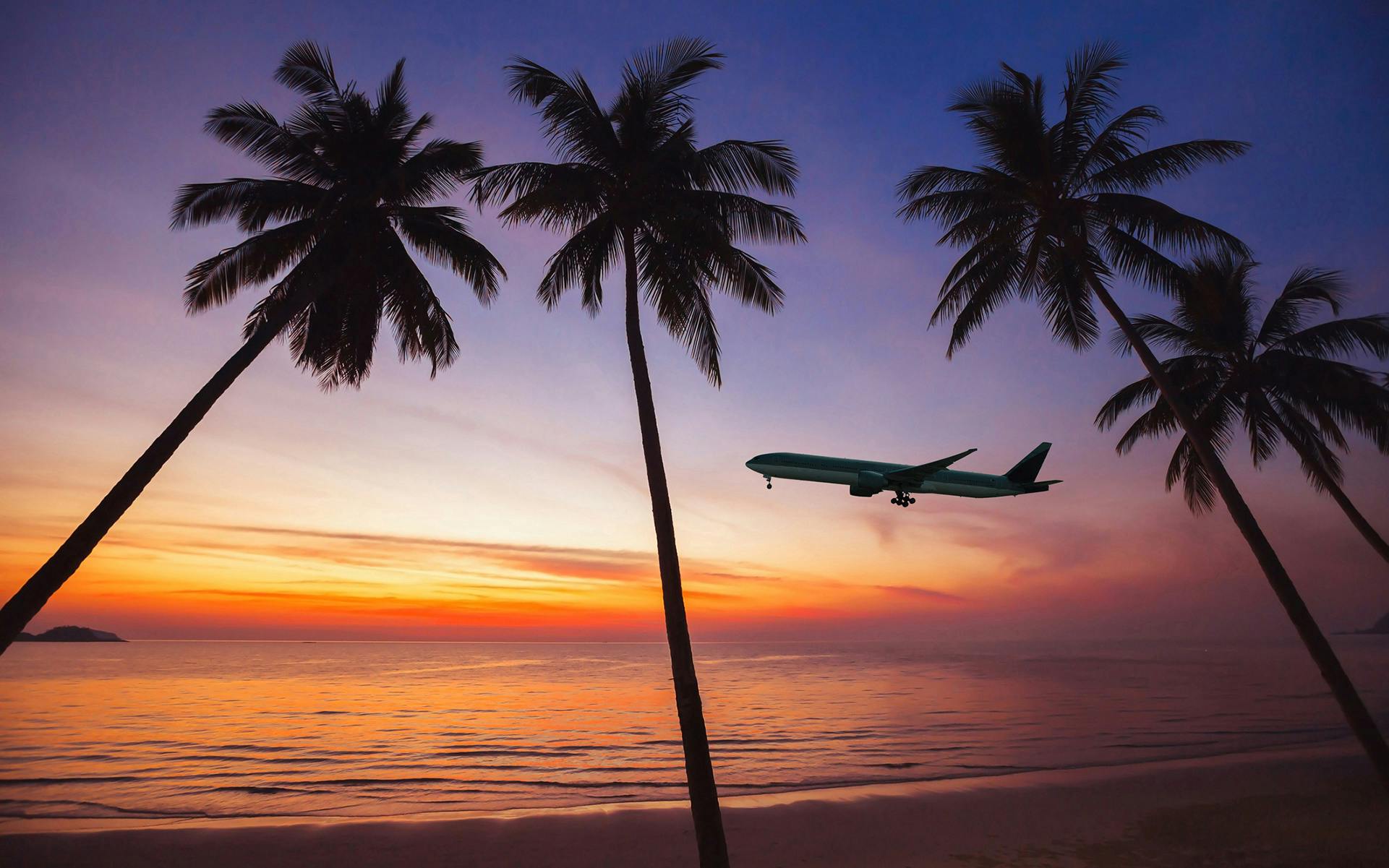Is marijuana legal in Hawaii?
Current legality status
medical
Cannabis is legal for qualified patients with a licensed card.
Medical cannabis is legal in Hawaii, but recreational cannabis use is not.
Possession of three grams or less of marijuana was decriminalized in July 2019, under Hawaii’s Measure 1383. From January 11, 2020, those found in possession of three grams or less may be subject to a $130 fine. Possession in excess of this amount is a criminal offense.
Individuals found with more than three grams and less than one ounce may be charged with a misdemeanor, landing them in prison for up to thirty days and/or a $1,000 fine.
Possession of between one ounce and one pound is a misdemeanor that may result in up to a year in prison and/or a fine of up to $2,000.
Possession of one pound of cannabis or more is a Class C felony punishable by up to five years in prison and/or a fine of up to $10,000.
Distributing marijuana is viewed as a felony, with the class of felony dependent on the amount being distributed and the location where distribution takes place. Individuals found guilty of possession with the intention to distribute are subject to a sliding scale of penalties in the form of prison time and fines.
In 2019, SB686 was approved to allow adults 21 and older to cultivate and consume recreational marijuana. The bill did not make it through the second panel necessary to advance the legislative process, effectively killing it.
Hawaii medical marijuana laws
Given that medical cannabis has been legalized in Hawaii since 2000, Hawaii’s medical cannabis laws have understandably undergone several revisions. Hawaii passed Act 228, the Medical Use of Cannabis Act, in 2000, making Hawaii the first state to legalize medical cannabis via the state legislature. The full text can be found here.
In 2013, HB 668 HD2 SD2 was passed and shifted the medical marijuana program from the Department of Public Safety to the Department of Health. The same bill established a Medical Marijuana Registry special fund to help offset the cost of processing and issuing patient identification certificates.
Act 178 also passed in 2013 and clarified language in the Medical Use of Marijuana Act, redefining terms such as “adequate supply” and “medical use.” As a result, registered medical cannabis patients and their registered caregivers became entitled to possess up to four ounces of usable cannabis and seven plants at any given time. Act 178 also expressed that qualifying patients must be issued with a registration certificate that costs no more than $35 per year, and are allowed only one primary caregiver.
In 2015, the legislature passed two more bills that further revised the medical cannabis program. HB 321, which was enshrined in law as Act 241, created regulations for eight statewide dispensaries to ensure safe and legal access to medical marijuana for those unable to cultivate their own. That same year, Act 242 clarified protection measures for medical marijuana patients, so they were not vulnerable to bias or unjust penalties in housing, school, or at their doctors.
In 2016, Act 230 saw further changes to medical cannabis laws in Hawaii. Advanced Practice Registered Nurses (APRNs) with prescriptive privileges were empowered to certify patients, and a Medical Cannabis Oversight Working Group was established to provide recommendations to improve the dispensary system.
Dispensaries opened to the public in 2017. In 2017, Governor David Ige signed HB 1488 into law, increasing the number of plants for qualified patients or caregivers from seven to ten. The bill also added rheumatoid arthritis, lupus, epilepsy, and multiple sclerosis to the qualifying conditions.
In 2018, Act 116 revised medical cannabis law on multiple fronts. The act legalized vaporizers for retail in dispensaries; made reciprocity provisions for out-of-state patients; and opened up discussion regarding the manufacture and dispensing of edibles. At present, there is a move planned to merge the registry and dispensary programs as the Office of Medical Cannabis Control and Regulation.
Hawaii qualifying conditions for medical marijuana
Hawaiians who wish to qualify as a medical marijuana patient must have a debilitating medical condition recognized by the state. These include:
- Amyotrophic lateral sclerosis
- Cancer
- Glaucoma
- Lupus
- Epilepsy
- Multiple sclerosis
- Rheumatoid arthritis
- Positive status for human immunodeficiency virus
- Acquired immune deficiency syndrome (AIDS)
- Post-traumatic stress disorder (PTSD)
Individuals living with chronic conditions that produce the following symptoms may also be eligible for medical marijuana:
- Cachexia (wasting syndrome)
- Severe pain
- Severe nausea
- Seizures, including those characteristic of epilepsy
- Severe and persistent muscle spasms, including those characteristic of multiple sclerosis or Crohn’s disease
How to get a medical marijuana card in Hawaii
The process of obtaining a 329 card (a medical marijuana identification card) in Hawaii is relatively straightforward. Here are the key steps, as outlined by the Hawaii Department of Health Medical Cannabis Registry Program.
- Set up an appointment with your medical provider. To register, the Department requires that the physician currently treating you provides certification that you have been diagnosed with a qualifying condition. The physician must agree that the potential benefits of the palliative use of cannabis should likely outweigh the health risks.
- Submit an online application. Once you have received physician certification, you then submit an online application. The online application for one-year registration costs $38.20 and requires proof of identity (such as a driver’s license or passport) and residency. If you plan to grow your own medical marijuana, you must also complete a grow site certification form. At the time of application, you must also designate your primary caregiver. The Department then determines your eligibility. If approved, a registration certificate will be sent to you.
- Check the status of your application. Completed and submitted applications are reviewed in the order they are received. You can check the status of your application on your medical cannabis registry account.
- Application outcome. You will be notified about the outcome of your application by email. You can sign in to your account to retrieve your 329 card online and save it to your mobile device. As of February 2019, all 329 cards became electronic.
Does Hawaii accept out-of-state medical cards?
Out-of-state patients can apply for registration for a $49.50 application fee. Using the online registration system, qualified patients can obtain an electronic registration card up to 60 days before their arrival in Hawaii. The process requires applicants to submit an ID and their medical cannabis registration from their home state.
The registration card is valid for 60 days, and patients can apply twice in a calendar year.
When does my Hawaii medical marijuana card expire?
Registration cards are valid for one year, according to the Health Department’s website. The registration card states the expiration date on it. Patients must renew 60 days before the current expiration date to ensure there is no gap in registration.
Patients may be eligible for a two-year renewal if their certifying physician agrees it is in their best interest.
Hawaii marijuana growing laws
Medical marijuana patients are permitted to cultivate their own cannabis in Hawaii but must follow strict regulations.
Medical marijuana can only be grown at one site. At present, individuals who are not well enough to cultivate their own cannabis can have a caregiver grow on their behalf.
However, caregivers will not be authorized to grow medical cannabis on behalf of a qualifying patient after December 31, 2023. The only exceptions are if the patient is a minor or adult lacking legal capacity, or the patient resides on an island that does not have a dispensary.
Accepted cultivation sites include:
- The patient’s residence
- The caregiver’s residence
- Another site that is owned or controlled by the patient or the caregiver
Medical marijuana patients are entitled to grow an “adequate supply” of medical cannabis, which cannot exceed ten plants. Patients should not have more than four ounces of usable cannabis in their possession at any given time.
The grow site must be designated when registering with the Department of Health, and also must appear on your 329 Card.
Hawaii public consumption laws
Hawaii’s smoke-free laws also apply to medical cannabis.
All in-state and out-of-state registered patients and caregivers are prohibited from acquiring, possessing, cultivating, using, distributing or transporting cannabis or paraphernalia in all public places. These places include:
- Parks
- Beaches
- School grounds
- Bars
- Nightclubs
- Shopping centers
According to Act 241, cannabis must be transported in a sealed container, not be visible to the public, and is not permitted to be removed from its sealed container or consumed or used in any way while it is in the public place. The act also prohibits the transportation of cannabis inter-island.
Possession of three grams or less of marijuana is subject to a fine of no more than $130.
Hawaii cannabis DUI laws
Driving under the influence (DUI) is illegal even in states where medical cannabis has been legalized. The Hawaii Department of Transportation has recently begun training officers with Advanced Roadside Impaired Driving Enforcement to recognize the signs of cannabis intoxication and may issue an Operating a Vehicle Under the Influence of an Intoxicant (OVUII) charge. Tests include field sobriety tests by Drug Recognition Experts (DREs), and blood, breath, and urine tests.
The discovery of marijuana in a vehicle may result in each occupant being charged with possession unless the marijuana was found on an occupant’s person or was in a compartment accessible only by occupants of that seat.
Commercial drivers who are found unlawfully transporting, in possession of or using cannabis while on duty will have their license revoked for at least one year.
Penalties
Drivers found guilty of DUI in Hawaii face the following penalties:
- First offense: 48 hours to 5 days in jail, $250 to $1,000 fine plus $50 in surcharges if the court orders, one-year suspended license with installation of IID, 72 hours of community service, a 14-hour minimum substance abuse rehabilitation program or other comparable program.
- Second offense (within 10 years): Five days to 30 days in jail, $1,000 to $3,000 fine, plus $75 surcharge if the court so orders, 24 months up to three-year suspended license with installation of IID, and 240 hours of community service.
Hawaii cannabis testing regulations
Testing laboratories opened for business in Hawaii in 2018. The same year, HB 2534 established independent laboratory testing standards for medical cannabis.
Testing must include the chemical profile of the cannabis (such as cannabinoids present) and show levels of heavy metal contaminants, pesticides, solvents, foreign material such as mold or hair, moisture content, and microbiological impurities present in the sample.
Common questions about marijuana legalization in Hawaii
Can medical patients grow in Hawaii?
Yes. Medical patients can cultivate up to ten plants, and no more than four ounces of usable cannabis at any given time.
Is Hawaii a medical state?
Yes. Medical marijuana is legal for patients who meet the criteria of the Department of Health.
Can you get a medical card for anxiety in Hawaii?
No. Anxiety is not recognized as a qualifying medical condition in Hawaii.
My medical condition is not eligible for medical cannabis. Can additional medical conditions be added to the list?
In Hawaii, adding conditions requires an in-depth review of evidence-based documentation and begins with thorough petitions prepared following Section 11-160-7, Hawaii Administrative Rules.
Does the law require health insurers to cover medical cannabis?
Health insurers are not required by law to offer coverage for medical cannabis.
Can patients use medical cannabis anywhere?
No. The law prohibits ingesting cannabis in any public place or in the presence of anyone under 18. It also prohibits any cannabis use that endangers the health or well-being of another person.
Can someone under the age of 18 years old register to use medical cannabis?
Yes, the same process applies. In addition, the physician must have explained the potential risks and benefits to both the minor and the minor’s parent or legal guardian, who must register as the designated caregiver.
Learn more about marijuana legalization in Hawaii
Keep up with the latest news about legalization in Hawaii
Stay current on Hawaii’s changing laws by bookmarking Leafly politics and signing up for our newsletter.
Post last updated Sept. 7, 2020
By providing us with your email address, you agree to Leafly's Terms of Service and Privacy Policy.


